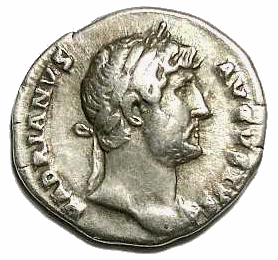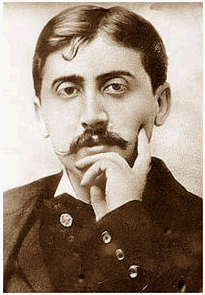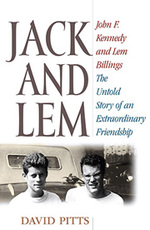Jon Stewart did a segment on this same thing last night. This is Scott Bateman’s take on it…with his usual brilliance…
Category Archives: History
ZEITGEIST, The Movie – Official Release – Full Film
| ZEITGEIST, The Movie – Official Release – Full Production
Visit www.zeitgeistmovie.com for information and the full source list for this work. |
|
You gotta love this…
Shrimp, crab, lobster, clams, mussels, all these are an abomination before the Lord, just as gays are an abomination. Why stop at protesting gay marriage? Bring all of God’s law unto the heathens and the sodomites. We call upon all Christians to join the crusade against Long John Silver’s and Red Lobster. Yea, even Popeye’s shall be cleansed. The name of Bubba shall be anathema. We must stop the unbelievers from destroying the sanctity of our restaurants.
Leviticus 11:9-12 says:
9 These shall ye eat of all that are in the waters: whatsoever hath fins and scales in the waters, in the seas, and in the rivers, them shall ye eat.
10 And all that have not fins and scales in the seas, and in the rivers, of all that move in the waters, and of any living thing which is in the waters, they shall be an abomination unto you:
11 They shall be even an abomination unto you; ye shall not eat of their flesh, but ye shall have their carcases in abomination.
12 Whatsoever hath no fins nor scales in the waters, that shall be an abomination unto you.
Deuteronomy 14:9-10 says:
9 These ye shall eat of all that are in the waters: all that have fins and scales shall ye eat:
10 And whatsoever hath not fins and scales ye may not eat; it is unclean unto you.
Gay Wisdom – Hadrian, Proust & Rofes
This entry was also this day’s Gay Wisdom email.
| / / | | / /THIS DAY IN GAY HISTORY
 On this date in the year 138 BCE, the Roman Emperor Hadrian, (b. 76) died. On a visit to Claudiopolis to survey damage from a recent earthquake and to dispense his largesse, Hadrian met the beautiful Antinous, a young boy who was destined to become the emperor’s "eromenos" — his beloved. Sources say nothing about when Hadrian met Antinous, however, there are depictions of Antinous that shows him as an exquisitely beautiful man of 20 or so. As this was shortly before Antinous’s drowning in 130 Antinous would more likely have been a youth of 13 or 14. Antinous may have been sent to Rome to be trained as page to serve the emperor and there rose to the status of imperial favorite. However it happened, he became Hadrian’s lifetime love, and upon his mysterious death by drowning in the Nile, spawned a rival religious movement to the early Christians, that also focused on a martyred youth, dying on behalf of the people, and providing restoration to life. Hadrian was grief struck and ordered cities to be named after the boy, medals struck with his effigy, and statues erected to him in all parts of the empire. Temples were built for his worship in Bithynia, Mantineia in Arcadia, and Athens; festivals celebrated in his honor and oracles delivered in his name. The city of Antinoöpolis or Antinoe was founded on the ruins of Besa where he died.
On this date in the year 138 BCE, the Roman Emperor Hadrian, (b. 76) died. On a visit to Claudiopolis to survey damage from a recent earthquake and to dispense his largesse, Hadrian met the beautiful Antinous, a young boy who was destined to become the emperor’s "eromenos" — his beloved. Sources say nothing about when Hadrian met Antinous, however, there are depictions of Antinous that shows him as an exquisitely beautiful man of 20 or so. As this was shortly before Antinous’s drowning in 130 Antinous would more likely have been a youth of 13 or 14. Antinous may have been sent to Rome to be trained as page to serve the emperor and there rose to the status of imperial favorite. However it happened, he became Hadrian’s lifetime love, and upon his mysterious death by drowning in the Nile, spawned a rival religious movement to the early Christians, that also focused on a martyred youth, dying on behalf of the people, and providing restoration to life. Hadrian was grief struck and ordered cities to be named after the boy, medals struck with his effigy, and statues erected to him in all parts of the empire. Temples were built for his worship in Bithynia, Mantineia in Arcadia, and Athens; festivals celebrated in his honor and oracles delivered in his name. The city of Antinoöpolis or Antinoe was founded on the ruins of Besa where he died.  On this day in 1871, the intellectual, novelist and essayist Marcel Proust was born. One of the first European writers to treat homosexuality at length, Proust is best known for his novel, Remembrance of Things Past. André Gide was the first to point out that Proust made certain characters female when he meant them to be male in the novel. For example, the character of Albertina was really based on Proust’s own chauffeur-lover Alfred Agostinelli. The book was first translated into English by C. K. Scott-Moncrieff between 1922 and 1931 in a bowdlerized version that removed many of the sexual aspects of the work. The work was recently retranslated from authoritative French originals to recover what had been lost.
On this day in 1871, the intellectual, novelist and essayist Marcel Proust was born. One of the first European writers to treat homosexuality at length, Proust is best known for his novel, Remembrance of Things Past. André Gide was the first to point out that Proust made certain characters female when he meant them to be male in the novel. For example, the character of Albertina was really based on Proust’s own chauffeur-lover Alfred Agostinelli. The book was first translated into English by C. K. Scott-Moncrieff between 1922 and 1931 in a bowdlerized version that removed many of the sexual aspects of the work. The work was recently retranslated from authoritative French originals to recover what had been lost.TODAY’S GAY WISDOM
 In 2005 White Crane published a special themed issue, "Our Bodies, Our Selves" in tribute to the groundbreaking women’s health book of the same name. At the time, we invited Eric Rofes, author of numerous books, including Reviving the Tribe, to write an essay on health and Gay men’s lives. Rofes amazing article, Gay Bodies, Gay Selves: Understanding the Gay Men’s Health Movement can found seen in the archives of White Crane.
In 2005 White Crane published a special themed issue, "Our Bodies, Our Selves" in tribute to the groundbreaking women’s health book of the same name. At the time, we invited Eric Rofes, author of numerous books, including Reviving the Tribe, to write an essay on health and Gay men’s lives. Rofes amazing article, Gay Bodies, Gay Selves: Understanding the Gay Men’s Health Movement can found seen in the archives of White Crane. ~ ~ ~
This entry was also this day’s Gay Wisdom email.
Sign up today to get our emails on Gay History and Wisdom!
My Forebears, Whitman, Brown & Cox
As a poet and writer living and working in DC I like to pay attention to writers like me who may have experienced many of the same things I have. What I mean is I’m conscious that my work (hopefully) has something to say about the place I live in that is in conversation with others who’ve written here as well. That’s not to say that all my poetry is place-specific, but a lot of it is. I become more and more conscious of the poets who have called Washington home.
 Yesterday I picked up my partner from work and we went to have drinks at a little bar in Logan Square (we were enticed by some very crazy martinis they’re famous for at this place). While we sat there on comfy couches by the front of the bar I pulled out my trusty copy of Walt Whitman and started reading into Pete’s ears. Just loud enough for him to read…
Yesterday I picked up my partner from work and we went to have drinks at a little bar in Logan Square (we were enticed by some very crazy martinis they’re famous for at this place). While we sat there on comfy couches by the front of the bar I pulled out my trusty copy of Walt Whitman and started reading into Pete’s ears. Just loud enough for him to read…
I am indifferent to my own songs—I am to
go with him I love, and he is to go
with me,
It is to be enough for each of us that we are
together—We never separate again.
And we had our delicious fruity drinks and enjoyed being connected to a poet we both love and admire.
I dance with the dancers and drink with the drinkers.
We would’ve danced if the drinks hadn’t been so powerful. Now, I’m sure there were a lot of folks wondering what we were doing there in this bar reading from a book. But Whitman deserves to be read aloud in all places and especially in the Washington he loved so much (the city he probably would’ve been buried in had he not suffered a stroke and had to move closer to family in Camden). So, I take Whitman with me in a lot of places and I become more familiar with the Whitman-specific things in DC (thanks to Kim Roberts, Martin Murry and many writers).
I also think of Sterling Brown because he lived in Brookland and I live in Brookland. I sometimes wonder how he experienced these same sidewalks and blocks in our corner of DC. I think that it’s good to remember you weren’t the first to experience life where you live. Whenever I think it might be odd to be writing about my life or the place I live I recall those who came before me. Those who wrote and to whom I’m endebted for populating my historical mind with precedents of verse and imagery.
 Which brings me to Ed Cox. Yesterday I was given a delightful gift by Kim Roberts of an old cover of the Washington Review featuring a great photograph of Cox (by Jesse Winch) on the cover. Cox was part of the Mass Transit poetry scene of the 1970s.
Which brings me to Ed Cox. Yesterday I was given a delightful gift by Kim Roberts of an old cover of the Washington Review featuring a great photograph of Cox (by Jesse Winch) on the cover. Cox was part of the Mass Transit poetry scene of the 1970s.
I never knew Ed Cox and didn’t move to DC until 10 years after his death. I first heard about Cox when I picked up a copy of his Collected Poems put out by Paycock Press. I was stunned by his poems.
 Along with Beth Joselow, Michael Lally, & Terence Winch, Cox was a key figure in that circle that created Some Of Us Press. As a partner in bringing a small poetry press to life there’s some connection there too. A group of poets wanting to bring the work of their fellows to life. His connection to a circle of friends, literary and artistic reminds me of the work I do with Bo on White Crane.
Along with Beth Joselow, Michael Lally, & Terence Winch, Cox was a key figure in that circle that created Some Of Us Press. As a partner in bringing a small poetry press to life there’s some connection there too. A group of poets wanting to bring the work of their fellows to life. His connection to a circle of friends, literary and artistic reminds me of the work I do with Bo on White Crane.
So, discovering a poet like Ed Cox, who made a life here and was so involved and committed to the city and its people and to living an out life as a Gay man in the 1970s is helpful to me. A poet who was kind and thoughtful and a good listener. These are all good things to aspire to.
If you don’t know who Ed Cox is or aren’t familiar with his work, we are again endebted to the amazing work of Kim Roberts, whose Beltway Poetry site serves as repository of the brain of DC Poetic history. There are a lot of amazing pieces there including a remembrance by Richard McCann, and an old interview of Ed Cox by E. Ethelbert Miller which was originally in the old Washington Review (where the above Cox photo by Jesse Winch comes from). In his gorgeous piece, McCann remembers his old friend as having "a gift for listening deeply, with a patient and even profound attentiveness." This gift, McCann observes, can be found throughout Cox’s poetry.
I am you,
as you are me in the misery of these avenues
and streets. Cuddle the bricks, whisper
beneath the great map of stars.
It seems fitting to remember the work of Ed Cox on this Gay Pride Month.
Special Friendships in Camelot
Starting with the cover photo of six people, including President Kennedy and LeMoyne Billings, the May issue of Houston’s OutSmart Magazine has an article based on a new book, by David Pitts, Jack and Lem: John F. Kennedy and Lem Billings-the untold story of an extraordinary friendship, published by Carroll Graf. My question to not only the homosexual community, but to all those journalists, since the 60s, and the dozens of historians and authors who made lots of money writing about President Kennedy and all the Kennedys, is, why has no one told the public this before?
I think the media also hid the many women President Kennedy had sex with, but they finally talked about that. Perhaps heterosexual writers didn’t think Lem was of interest. But, in a sense contradicting myself when I’ve complained about our gay media trying to out celebrities, and putting merely gay-friendly celebrities on their covers and in their pages, as if we would be happier-gayer-if famous rich and cute people were also homosexual, it seems to me that this friendship is of great interest in knowing how our government acted on sexuality in the 60s and after when the homosexual movement for civil rights was slowly but surely growing.
A major issue is that the most powerful person in the world had a lifetime friendship with a homosexual, and everyone in the White House, and the family members all along, knew this, and so you have to ask why no one mentioned this all these years. The issue is a major one also because those who started this movement were accused of alerting the public to homosexuality and thus scaring off possible sex partners.
And the author covers this issue this way: "That’s one point I tried to make in the book in one of the chapters. Ironically, in some ways gay people had more license at that time than they do now. Homosexuality wasn’t on the radar screen, the general population wasn’t really aware of it, and so, in a sense, gay people could do certain things, such as the example you gave, and it did not come under suspicion the way it clearly would today."
So those people who complained that once Mattachine stopped being secret, and became public as ONE Magazine, their easy find of sex partners would be hurt, had a point. Can heterosexual men and women have close friendships with homosexual men and women without being called homosexual? Will this book be almost as important as Brokeback Mountain in getting all of us to think about homosexuality?

